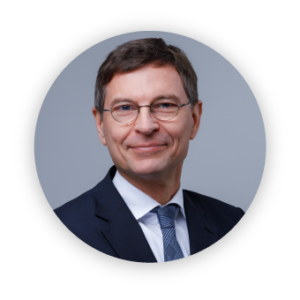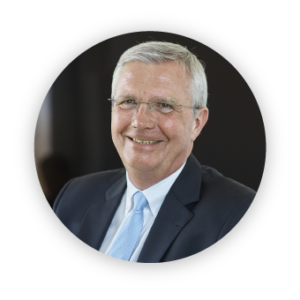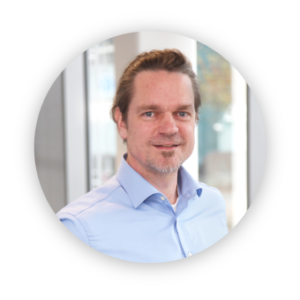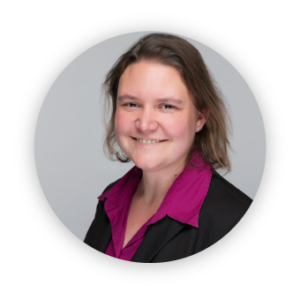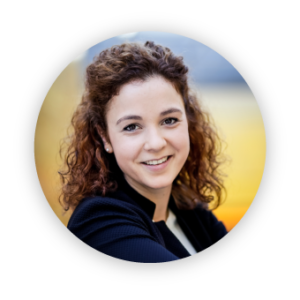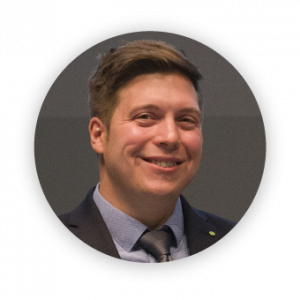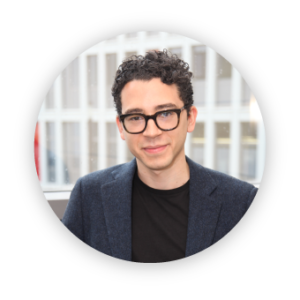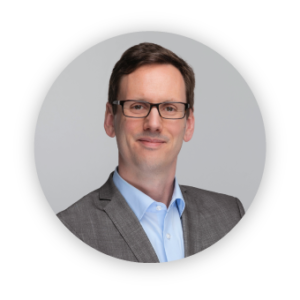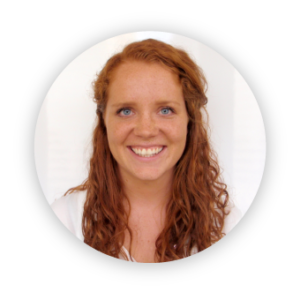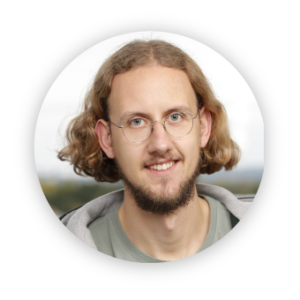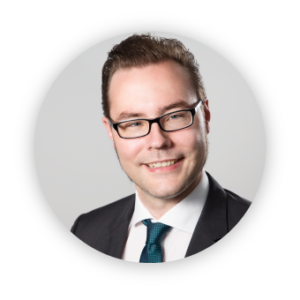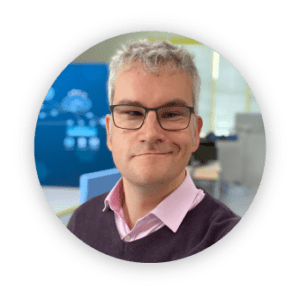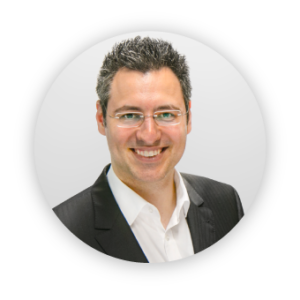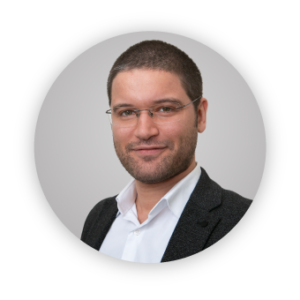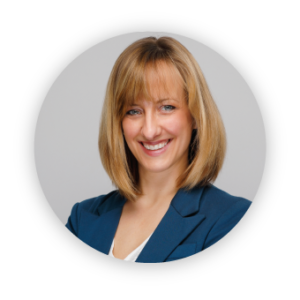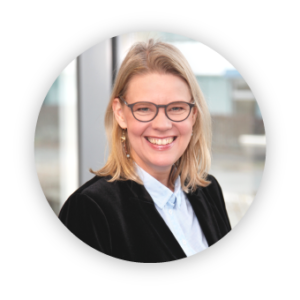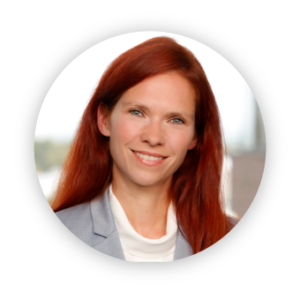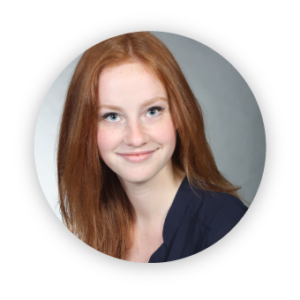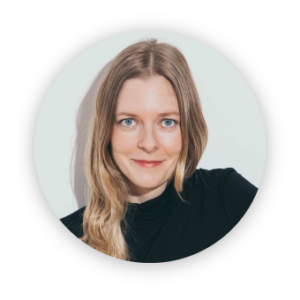ML2R became the Lamarr Institute – find all current information here!
Introducing the Leadership Team
Here you get an overview of the competence center’s organizational structure and find contact persons for the different fields. Whether you have inquiries about our main research areas, about scientific collaborations or are interested in working together on joint research and industry projects – we look forward to hearing from you.
The Spokespersons
Prof. Dr. Katharina Morik
Katharina Morik received her doctorate from the University of Hamburg in 1981 and her habilitation from the TU Berlin in 1988. In 1991, she established the chair of Artificial Intelligence, which focuses on Machine Learning, at the TU Dortmund University. The current focus lies on learning algorithms for distributed, real-time applications, for example in astrophysics, industry 4.0 or traffic infrastructure.
In 2011, she acquired the Collaborative Research Center SFB 876 “Providing Information by Resource-Constrained Data Analysis”, of which she is the spokesperson. Katharina Morik has been involved in numerous EU projects: She has coordinated the MiningMart project and worked in the projects VaVel and Insight on the analysis of data streams for traffic planning.
Katharina Morik has been a member of the Academy of Technical Sciences since 2015 and of the North Rhine-Westphalian Academy of Sciences, Humanities and the Arts since 2016. She is the author of more than 200 publications in prestigious journals and conferences. She was a member of the editorial board of the journal “Machine Learning” and is currently one of the editors of the international journal “Data Mining and Knowledge Discovery”. She was a founding member, Program Chair and Vice Chair of the conference series IEEE International Conference on Data Mining (ICDM) and Program Chair of the European Conference on Machine Learning and Principles and Practice of Knowledge Discovery in Databases (ECML PKDD).
The first efficient implementation of the Support Vector Machine (SVM) and the globally successful data analysis tool RapidMiner were developed at her department. Together with Volker Markl, Katharina Morik heads the working group “Technological Pioneers and Data Science” of the platform “Learning Systems” of the German Federal Ministry of Education and Research (BMBF).
In 2019, Katharina Morik was recognized as pioneer of Machine Learning and awarded with the GI Fellowship by the Gesellschaft für Informatik e.V. (GI).
Prof. Dr. Katharina Morik
Technical University of Dortmund
Faculty of Computer Science
Otto-Hahn-Str. 12
44227 Dortmund
Germany
Prof. Dr. Stefan Wrobel
Stefan Wrobel studied Computer Science in Bonn and Atlanta, Georgia, USA (M.S., Georgia Institute of Technology) with a focus on Artificial Intelligence and received his doctorate from the TU Dortmund University. After working in Berlin and Sankt Augustin, he became Professor of Computer Science at the University of Magdeburg, before accepting a call to his current position in 2002. Since 2014, he has also been one of the directors of the Bonn-Aachen International Center for Information Technology (b-it).
Professor Wrobel has been working on aspects of digitization for many years, particularly in regard to intelligent algorithms and systems for the analysis of large amounts of data and the influence of Big Data/Smart Data on the use of information in companies and society. He is the author of a multitude of publications in the fields of Data Mining and Machine Learning, a member of the editorial board of several leading journals and a founding member of the “International Machine Learning Society”. Wrobel was honored by the German Computer Science Society (Gesellschaft für Informatik (GI) e.V.) as one of the most influential people in German AI history.
As speaker of the “Fraunhofer Alliance Big Data and Artificial Intelligence”, director of the “Fraunhofer Research Center Machine Learning”, deputy chairman of the “Fraunhofer Information and Communication Technology Group” and speaker of the group “Knowledge Discovery, Data Mining and Machine Learning” of the Society for Computer Science, he is advancing the topics of digitization, intelligent use of Big Data and Artificial Intelligence on a national and international level.
Prof. Dr. Stefan Wrobel
Fraunhofer Institute for Intelligent Analysis
and Information Systems IAIS
Schloss Birlinghoven
53757 Sankt Augustin
Germany
The Representatives of the Partners
Prof. Dr. Dr. h. c. Michael ten Hompel
Professor Dr. Dr. h. c. Michael ten Hompel studied Electrical Engineering at the RWTH Aachen and received his doctorate from the University of Witten/Herdecke. He holds the chair of Materials Handling and Warehousing (FLW) of the TU Dortmund University and is the Managing Director of the Fraunhofer Institute for Material Flow and Logistics. Before his scientific work he was an entrepreneur. Among other things, he founded GamBit GmbH (today Vanderlande Industries) in 1988 and headed the company, which is primarily involved in the development and implementation of warehouse management systems and industrial control systems, as managing partner until 2000.
Michael ten Hompel is considered to be one of the fathers of the Internet of Things and has published numerous reference books and over four hundred articles on logistics and IT. He is co-editor of the “Lecture Notes in Logistics” (Springer) and other specialist publications. Michael ten Hompel is a member of the Academy of Engineering Sciences and in 2012, he was inducted into the Logistics Hall of Fame. In 2017, he received an honorary doctorate from the University of Miskolc (Hungary). In 2018, he was awarded the honorary distinction “Citizen of the Ruhr Area” by the Pro Ruhr Area Association. In 2019, he received the international HERMES Logistics Award in Vienna.
Prof. Dr. Dr. h. c. Michael ten Hompel
Fraunhofer Institute for Material Flow und Logistics IML
Joseph-von-Fraunhofer-Str. 2-4
44227 Dortmund
Germany
Prof. Dr. Christian Bauckhage
Christian Bauckhage studied Computer Science and Physics at the University of Bielefeld, was a Research Intern at INRIA in Grenoble and received his PhD in Computer Science from the University of Bielefeld. He then worked as a Postdoctoral Researcher at the Centre for Vision Research in Toronto, Canada, and as a Senior Scientist at Deutsche Telekom Laboratories in Berlin. In 2008, he was appointed as a Professor of Computer Science at the University of Bonn and became Lead Scientist for Machine Learning at Fraunhofer IAIS.
Prof. Bauckhage has more than 20 years of experience as a Data Scientist in industry and science and is (co-)author of numerous publications on Pattern Recognition, Data Mining and Intelligent Systems. His current research focuses on techniques of Informed Machine Learning, which integrate knowledge and data Driven methods, and on Quantum Computing solutions for Machine Learning. Applications can be found in areas such as Physics, Agriculture, Social Media or Business Analytics. He is a sought-after speaker and passionate advocate of open innovation and open science. Christian Bauckhage advises companies and public institutions on the development and deployment of solutions for Machine Learning and Artificial Intelligence.
Prof. Dr. Christian Bauckhage
University of Bonn
Friedrich-Hirzebruch-Allee 5
53115 Bonn
Germany
The Management
Heike Horstmann
Managing Director ML2R
Heike Horstmann is Managing Director of the Competence Center Machine Learning Rhine-Ruhr at the Bonn site.
Heike Horstmann is an experienced project manager at the Fraunhofer Institute for Intelligent Analysis and Information Systems IAIS. In the past, she successfully coordinated various funding and business projects. Most recently, she headed a Project Management Office at Fraunhofer IAIS.
After graduating as an engineer in Communications Technology at the University of Applied Sciences Cologne (TU Köln) Heike Horstmann conducted research on interactive digital TV formats at the Fraunhofer Institute for Media Communication IMK and participated in the standardization and market launch of the European Multimedia Home Platform (MHP). With the re-establishment of Fraunhofer IAIS in 2006, Heike Horstmann took over the technical management of the EU project “LIVE – Staging of media events” and continued her research, which culminated in an interactive live broadcast of the 2008 Olympic Games by the project partner ORF. From 2012 on she led a national funding project on targeted advertising formats and coordinated the EU project “LinkedTV”, in which research was successfully conducted on the linking of TV and web content through automatic annotation processes and semantic enrichment. Since 2016 Heike Horstmann has been working on approaches to cognitive process automation and has been leading data science projects for business clients.
Dr.-Ing. Stefan Michaelis
Managing Director ML2R
Stefan Michaelis has been Managing Director of the Competence Center Machine Learning Rhine-Ruhr for the Dortmund location since 2018. He manages the operative business together with the representatives of the other locations. He supports the scientists in their tasks and coordinates cooperations internally as well as with project management agencies, the German Federal Ministry of Education and Research (BMBF) and cooperation partners from the private sector.
Prior to this, he was Managing Director of the Collaborative Research Center 876 ““Providing Information by Resource-Constrained Data Analysis” funded by the German Research Foundation (DFG) from 2011. The Collaborative Research Center investigates possibilities of Intelligent Data Analysis under consideration of available resources: from small cyber-physical systems to mainframe computers for the analysis of large amounts of data. The goal is to extract information from ever larger amounts of data – in a timely manner, without large energy requirements and directly on site. Stefan Michaelis was also involved in the successful application for both the second and third funding phases until 2022.
After studying engineering informatics, Stefan Michaelis received his doctorate in Electrical Engineering with applications in Machine Learning for quality improvement in mobile communications. In his doctoral thesis, he investigated how predictions of expected movements of mobile phone users – independent of the profiles of specific users – allow for an outlook on the future utilization of mobile phone cells.
The Scientific Coordination
At ML2R, Machine Learning (ML) research focuses on four key topics: Trustworthy ML, Hybrid ML, Resource-aware ML, and ML on Quantum Computers. We introduce the four coordinators of the main research areas.
Dr. Maram Akila
Coordinator Trustworthy ML
Research Focus:
Trustworthy Machine Learning
What problems are you currently working on?
- Differentiation between stochastic and systematic failure within ML models
- Probabilistic modeling of DNN outputs to mitigate performance and data deficits, such as inherent data uncertainty (aleatory uncertainty) or lack of data coverage (epistemic uncertainty)
- Introspective methods to analyze existing predictions
What are you particularly interested in?
- Technical reliability of AI systems
- Use of neural networks within critical applications, especially autonomous driving
- Uncertainty quantification for (deep) neural networks, and their use to mitigate existing uncertainties
- Performance analysis on input subsets, especially semantic in nature
Dr. Helena Kotthaus
Coordinator Resource-aware ML
Research Focus:
Trustworthy and Resource-Constrained ML
What problems are you currently working on?
- Transfer of machine learning methods between research and industrial projects
- Extraction of ML expert knowledge to generate checks for typical pitfalls in machine learning pipelines, aiming at trustworthiness
What are you particularly interested in?
An unified system for the certification and explanation of ML processes for software engineers and scientists who are no experts in the field of AI or ML.
Dr. Nico Piatkowski
Coordinator ML on Quantum Computers
Awards:
- 2020 Best-Paper Award IEEE ICC
- 2019 Reviewer Award ECML PKDD
- 2019 Nominierung für den Dissertationspreis der Gesellschaft für Informatik e. V.
- 2018 Dissertationspreis TU Dortmund
- 2013 Best-Student-Paper Award ECML PKDD
Research Focus:
Resource-Constrained Learning, Quantum Machine Learning
What problems are you currently working on?
- Structure learning for graphical and neural machine learning models
- Non-classical hardware (like quantum gate circuits or field programmable gate arrays) for probabilistic inference in high-dimensional models
- Accurate probabilistic modelling of physical, industrial, and economic systems and their simulation
What are you particularly interested in?
- Theoretical and practical insights into finding the most resource-efficient realization of particular machine learning models together with an accurate analysis of its inherent uncertainties.
- Learning model structures which are tailored to a specific computational architecture, to identify important and unnecessary parts of a model, free unused resources, and make use of all available compute capabilities.
Dr. Ramses Sanchez
Coordinator Hybrid ML
Research Focus:
Hybrid ML
What problems are you currently working on?
- Dynamic generative language models, that is, language models that leverage representations from point process models in time to capture how e.g. reviews or news evolve with time
- Learning both discrete and continuous representation for generative models of text using mutual information metrics
- Neural network models for switching dynamical systems
- Generative neural network models for point processes and queueing systems
What are you particularly interested in?
I’m interested in using Bayesian nonparametric processes as prior distributions in deep generative models of text, with the goal of representation learning for text summarization and controllable text generation.
The Technology Transfer
The members of the technology transfer team take care of the direct interlinking of science with application fields of Machine Learning in business. In this way, science benefits from data and tasks from practice and the research results quickly find their way into application.
Dr. Stefan Rüping
Manager for Technology Transfer
Dr. Stefan Rüping is head of the department “Knowledge Discovery” at Fraunhofer IAIS. He has many years of experience in consulting, projects and teaching, both in customer projects and in research. His research interests are machine learning, artificial intelligence and data mining. In the Competence Center Machine Learning Rhine-Ruhr (ML2R) he is responsible for the transfer of research results. Dr. Rüping studied computer science at the Technical University of Dortmund, where he also worked as a research assistant at the Chair of Artificial Intelligence. In 2006 he received his doctorate in the field of machine learning on the topic of “Learning Interpretable Models”.
Katrin Klug
Technology Transfer Advisor
Katrin Klug is a data scientist with focus on AI communication at Fraunhofer IAIS. In her function at ML2R competence center she is a contact person for the knowledge transfer of ML2R activities. Therefore, she coordinates the ML2R Blog, which is intended to increase the visibility of ML2R competencies and activities. After her double bachelor degree in “International Business” and “Marketing and Commercial Management” at the Fachhochschule Dortmund and the ESIC Business School Valencia, she specialized with her Master in “Business Analytics” at the Hochschule Düsseldorf. During her studies she already worked for various organizations and companies in the aviation industry where she was mainly responsible for data analysis and strategic reporting.
Dr. Helena Kotthaus
Coordinator Research Transfer
Dr. Helena Kotthaus is a senior researcher at the Artificial Intelligence group of TU Dortmund University. She is responsible for the transfer between research, business, and industrial projects within the ML2R Competence Center. Her research interests focus on achieving trustworthiness and resource-efficiency in Machine Learning algorithms. She received her Ph.D. from TU Dortmund University for her work on “Methods for Efficient Resource Utilization in Statistical Machine Learning Algorithms” in 2018. Dr. Kotthaus worked as a staff member at TU Dortmund University’s Embedded Systems Group and the DFG Collaborative Research Center SFB 876 on “Providing Information by Resource-Constrained Data Analysis”. After interning at Oracle Labs, Belmont in 2012, she received a grant from Oracle to coordinate a project on performance comparison methods for the statistical programming language GNU R.
Mirko Bunse
Coordinator Astroparticle Physics
Mirko Bunse is a research associate at the Artificial Intelligence group of TU Dortmund University. In 2018, at the same university, he received his Master’s degree with distinction. Since 2016, he is studying the manifold applications of Machine Learning in astro-particle physics, including the resource-aware control of simulations and the domain-specific aggregation of predictions.
Dr. Gunar Ernis
Coordinator Industry 4.0
Sören Kerner
Coordinator Logistics
Dr. Christoph Schmidt
Coordinator Multimedia Analysis
Christoph Schmidt studied computer science at RWTH Aachen University and earned his doctorate on the topic of machine translation at the chair of Professor Hermann Ney.
Since 2014, he has been working at Fraunhofer IAIS as a research associate and is now deputy department head as well as business unit manager for “Speech Technologies”.
His research topics include automatic speech recognition, in particular self-learning speech recognition systems involving structured and unstructured data, speaker recognition, and audio classification algorithms.
Dr. Rafet Sifa
Coordinator Cognitive Process Automation
Rafet Sifa is the business unit manager of Cognitive Business Optimization, deputy head of the Media Engineering department, and senior data scientist at the Fraunhofer Institute for Intelligent Analysis and Information Systems (IAIS) in Sankt Augustin.
His current research focus is based on statistical data mining in representation learning for a variety of industry applications, including behavioral analysis, digital forensics, and text mining.
Prior to joining Fraunhofer, he worked as a data scientist in the gaming industry, where he focused mainly on developing Machine Learning solutions for business intelligence problems. He frequently gives talks and organizes workshops on representation learning and behavior analysis at scientific conferences and industry summits.
Communication and Networking
The team is responsible for communication, press and public relations, information exchange with partner organizations, and networking with German and international AI competence centers. Contact the members of the communication and coordination team if you have any questions about the ML2R!
Katrin Berkler
Head of Communications
Katrin Berkler is Head of Press and Public Relations at the Fraunhofer Institute for Intelligent Analysis and Information Systems IAIS. After studying Cultural, Media and Economic Sciences at the Universities of Siegen and Orléans (France) and working as a research assistant at a chair of Media Science in Siegen and at the Siegen Institute for small and medium-sized enterprises, she joined the Fraunhofer Institute SCAI in 2009, working in the field of marketing and communications.
Since 2010, she has been in charge of PR activities at Fraunhofer IAIS. In her role as Head of Communications she is responsible for numerous strategic projects and initiatives in all aspects of communication and public relations. Since 2014, Katrin Berkler has also been in charge of public relations for the Fraunhofer Alliance Big Data and Artificial Intelligence, a network of over 30 Fraunhofer Institutes for cross-sector research and technology development in the field of Big Data and Artificial Intelligence. In addition, she and her team are responsible for the press and public relations of the Competence Center Machine Learning Rhine-Ruhr (ML2R), the Competence Platform KI.NRW, the Fraunhofer Research Center Machine Learning as well as the Roberta Initiative, one of the largest initiatives for digital education in Germany.
Inga Daase
Science Communication Consultant
Inga Daase has been a consultant at ML2R since 2018. Her work focuses on communication on research activities and scientific results. She is a member of the press and public relations team at Fraunhofer IAIS. In addition to communication activities for ML2R, she is in charge of other strategic projects of the institute such as the European Platform AI4EU and the Fraunhofer Research Center Machine Learning.
After her studies and graduation in physics at the University of Bonn, Inga Daase worked in various companies and public institutions, such as the Karlsruhe Institute of Technology, in the fields of communication and marketing. During her professional career, she has coordinated cultural exchange, research and technology projects for international corporations and organizations in Germany and Japan. She has experience in communicating scientific content and in promoting the marketing of research results, technologies and patents.
Vanessa Faber
Coordinator
Vanessa Faber has been a coordinator for the Dortmund location of the Competence Center Machine Learning Rhine-Ruhr since 2018. In addition to her role as Coordinator within ML2R, she is responsible for the cooperation and communication between the German competence centers at a national level. She is in constant communication with the Federal Ministry of Education and Research (BMBF) and act as point of contact for the cooperation of the German and French competence centers.
Vanessa Faber studied Computer Science at the Technical University of Dortmund. After her studies she was involved in the successful application for the first funding phase of the Collaborative Research Center 876 “Providing Information by Resource-Constrained Data Analysis” funded by the German Research Foundation (DFG) before she worked in industry for several years.
Ann-Kathrin Oster
Associate
In her work at the Competence Center Machine Learning Rhine-Ruhr ML2R, Ann-Kathrin Oster strives to communicate scientific results and events in the context of the Competence Center in a way that is understandable and comprehensible. Her goal is hereby to make research on Machine Learning as a key technology of Artificial Intelligence accessible to a broad public. She also holds the position of the coordinator for the cooperation with the German state of North Rhine-Westphalia and other state actors.
During her studies, which she completed with a Master of Arts degree in Media and Political Communication at the Free University of Berlin, Ann-Kathrin Oster specialized in political communication and public relations. She strengthened this focus by working in political institutions on the federal and state level.
Katharina Peters
Coordinator
As coordinator at the Competence Center Machine Learning Rhine-Ruhr ML2R Katharina Peters organizesthe public relations of the Network of National Centres of Excellence for AI Research. Her aim is to make the network’s scientific excellence in Artificial Intelligence visible, which also includes her acting as point of contact for the Plattform Lernende Systeme, Germany’s Platform for Artificial Intelligence, and other networks. Another main focus of her work is the communication and cooperation of the competence centers on Ethics in AI.
After her studies, which she completed with a Master’s degree in Applied Cultural Studies at TU DortmundUniversity, Katharina Peters focused on linguistic and media approaches when analyzing and addressing issues related to racism, discrimination and other current questions of society.



